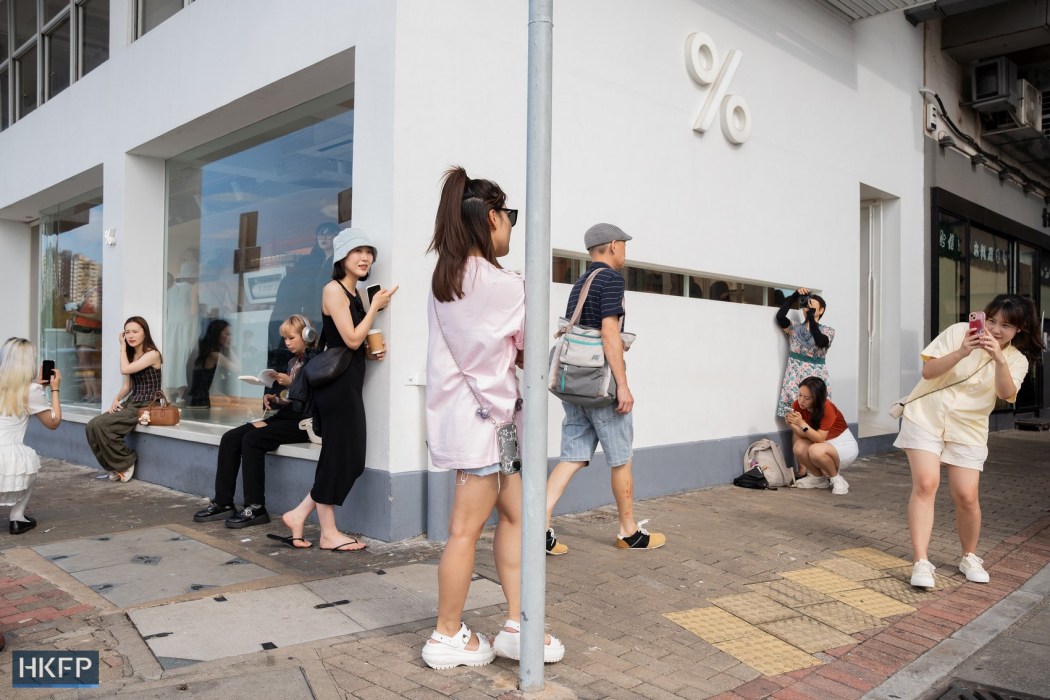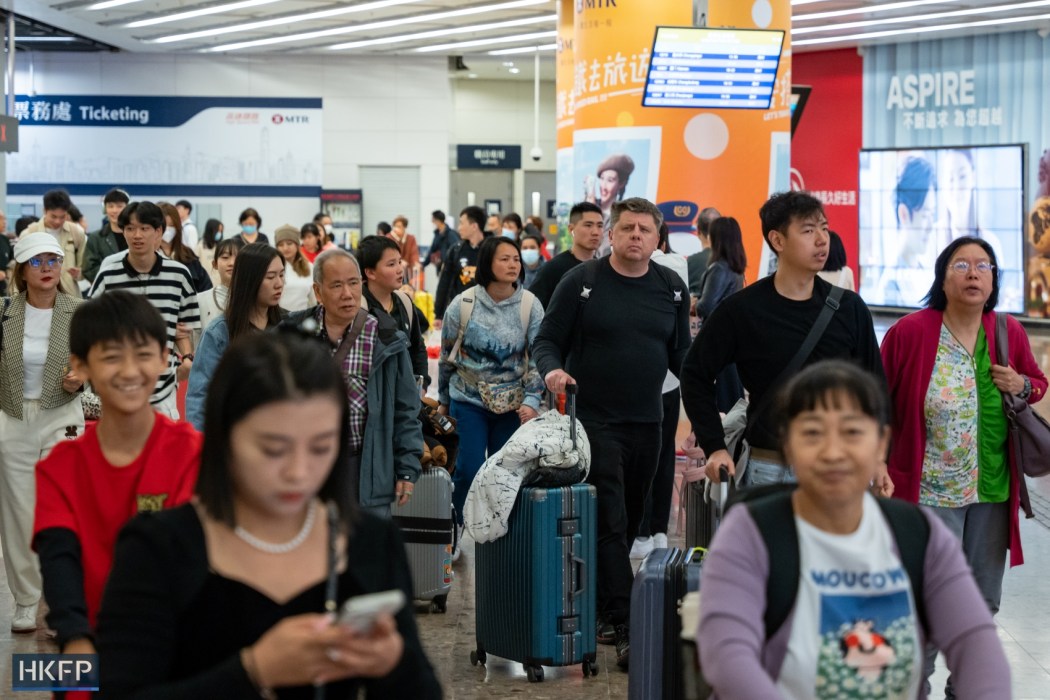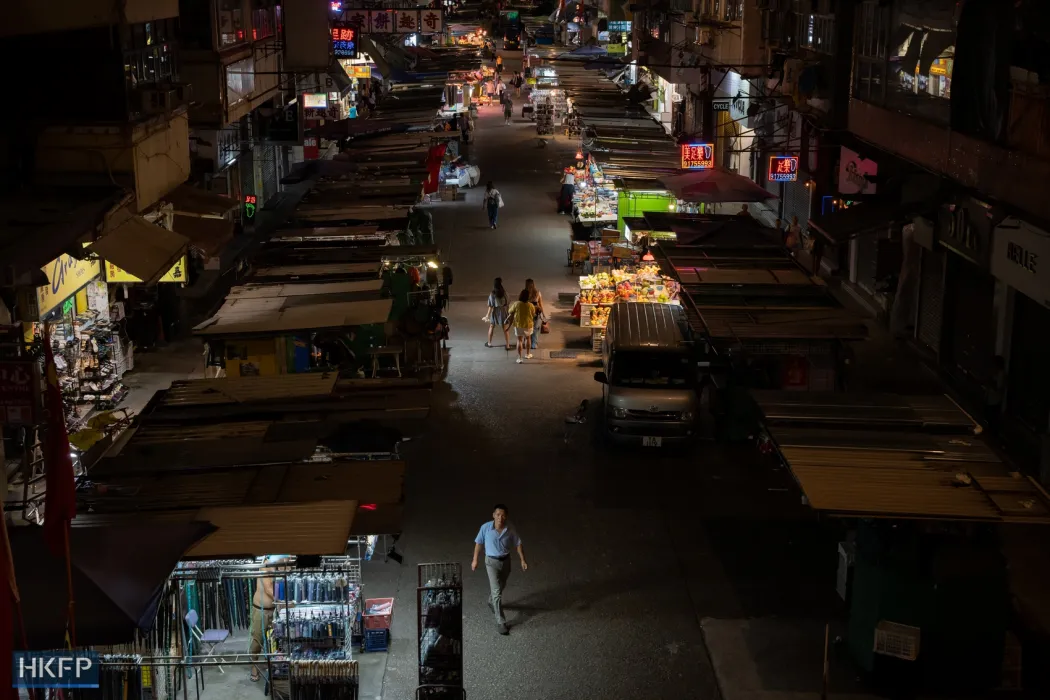Beijing’s move to expand a travel scheme for mainland residents to visit Hong Kong shows President Xi Jinping’s care and support for the city, Chief Executive John Lee has said.
Beijing announced on Friday afternoon that residents from two more cities – Xian and Qingdao – are allowed to visit Hong Kong on an individual visa.

Currently, residents from 49 cities such as Beijing, Shanghai and Wuhan can visit Hong Kong under the individual visit scheme.
The National Immigration Administration of China said on Friday in a Chinese statement that the expanded travel scheme will come into effect on March 6. Residents of Xian and Qingdao can apply for four types of visa: a visa valid for three months, two visas valid for three months, a visa valid for one year, or two visas valid for one year.

In response, Chief Executive Lee said he felt “very happy” about Beijing’s announcement as he met the press on Friday afternoon.
“This move reflects President Xi Jinping’s care and support for Hong Kong, especially in the area of economic development. I am grateful for the Central Government, for its positive reaction over the suggestion by the HKSAR,” Lee said in Cantonese.
Lee added that people in Xian and Qingdao are both “high-income” and “high-consumption” groups. He believed those travellers will help boost hotel and catering businesses in Hong Kong.

Chief Executive for Administration Eric Chan said last Saturday on Commercial Radio that the government was “discussing” bringing more mainland Chinese tourists to Hong Kong.
He added that authorities were studying an expansion of the individual visit scheme, and moves to revive multiple entry visas for Shenzhen residents.
In 2014, the Hong Kong government propose replacing the multiple-entry visa scheme with a once-a-week permit, following complaints from residents in the North District about parallel traders travelling from Shenzhen. The once-a-week permit for Shenzhen residents came into effect in 2015.
Chairman of the Hong Kong Tourism Board Pang Yiu-kai, thanked Beijing in a statement on Friday: “The Mainland is Hong Kong’s largest visitor source market and Hong Kong is one of the travel hotspots for Mainland travellers. The expansion of the Individual Visit Scheme does not only unlock Hong Kong’s doors to travellers from more Mainland cities, which is conducive to exploring new sources of visitors for Hong Kong, but also brings about tremendous benefits to the city’s tourism-related sectors, including retail, food and beverage, and hospitality sectors, which helps boost the city’s economy.”
Chinese tourists return, but less consumption
Hong Kong has seen a slow recovery in the tourism sector since the city reopened all borders early last year following years of strict Covid-19 restrictions. The pace of international tourist arrivals to Hong Kong has resumed at a much slower rate than that of mainland Chinese tourists.

The government extended the working hours of some mainland border checkpoints during the 2024 Lunar New Year holiday. From February 10 to 17, the city recorded around 1.436 million inbound visitors. Around 1.25 million tourists – or close to 90 per cent – were from mainland China.
Ming Pao reported that the number of mainland tourists arriving from February 10 to 16 was a little higher than the number of tourists seen during the week-long 2018 Lunar New Year break. However, the figures were 20 per cent lower than the numbers seen during the week-long 2019 Lunar New Year holiday.

Rayman Chui, chair for the Institute of Dining Professionals, told Ming Pao that mainland Chinese tourists were spending less compared to pre-pandemic levels: “Previously they would order a lot of food, just for a table of two people. Now [they order] one Pineapple bun and a cup of milk tea for photo-taking,” Chui said in Cantonese.
He added, according to his observations, many Chinese tourists will spend HK$100 per person whilst spending used to be HK$200-300 per person in 2019.
Support HKFP | Policies & Ethics | Error/typo? | Contact Us | Newsletter | Transparency & Annual Report | Apps
Help safeguard press freedom & keep HKFP free for all readers by supporting our team

LATEST FROM HKFP
HKFP has an impartial stance, transparent funding, and balanced coverage guided by an Ethics Code and Corrections Policy.
Support press freedom & help us surpass 1,000 monthly Patrons: 100% independent, governed by an ethics code & not-for-profit.










